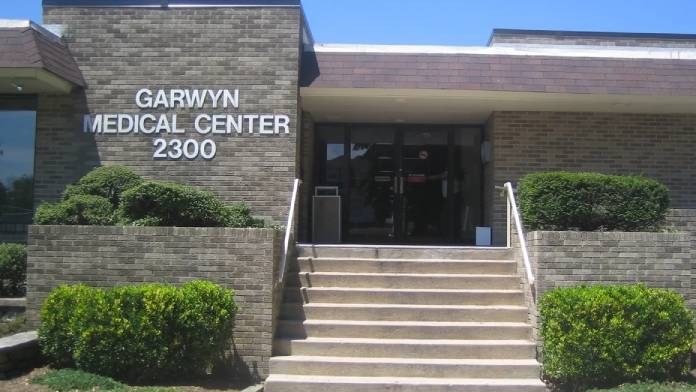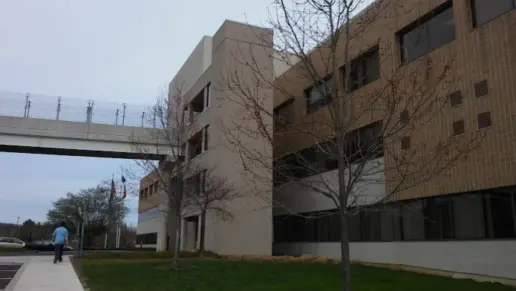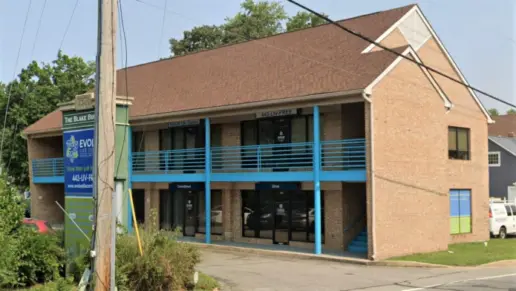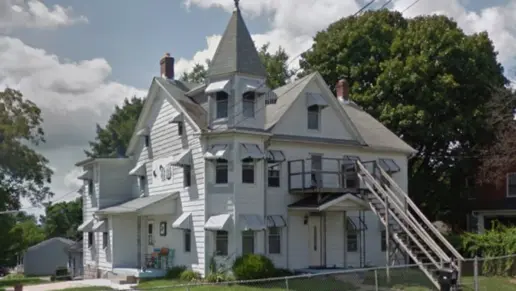About Misha house
Misha House Baltimore in Baltimore, Maryland, is a nonprofit drug rehab offering levels of care including outpatient, intensive outpatient, a partial hospitalization program, residential supportive housing and a DUI/DWI educational program. Support is available for men and women of all ages, ethnicities and walks of life.
Their outpatient program includes toxicology screenings, community integration, mindfulness practice and medical and psychiatric coordination alongside individual and group counseling. Clients undergoing medication assisted treatment may also attend and benefit from their outpatient program.
The intensive outpatient program is designed to bridge the gap between residential and community based treatment using a Matrix Model of evidence based practices. This is done through relapse prevention, medical and psychiatric coordination, as well as individual and group counseling and cognitive behavioral therapy. Clients undergoing medication assisted treatment are also eligible for this program.
Misha House’s partial hospitalization program includes 20+ hours of interdisciplinary clinical services, medication management, disease management education, individual and group counseling and complementary recreational therapies. Service coordination and referrals are available where necessary.
Misha House also offers recovery supportive housing to help clients foster long term recovery with the help of Peer Housing Coordinators. Residential treatment supports clients with time and financial management, employment opportunities, household maintenance and other useful life skills education. As with the other programs, clients undergoing medication assisted treatment are accepted.
Their DUI & DWI program provides education, training and assessment alongside counseling that meets court mandated legal and probation specifications.
Misha House accepts self pay, Medicaid and Medicare as well as most commercial insurance options including Aetna, Anthem and Humana. Clients are advised to clarify coverage with individual providers regarding out of network benefits.
 Payment Options
Payment Options
Private Insurance
Self-pay options
Medicare
Medicaid
Medicare
 Levels of Care
Levels of Care
 Outpatient
Outpatient
Outpatient Programs (OP) are for those seeking mental rehab or drug rehab, but who also stay at home every night. The main difference between outpatient treatment (OP) and intensive outpatient treatment (IOP) lies in the amount of hours the patient spends at the facility. Most of the time an outpatient program is designed for someone who has completed an inpatient stay and is looking to continue their growth in recovery. Outpatient is not meant to be the starting point, it is commonly referred to as aftercare.
 Intensive Outpatient
Intensive Outpatient
Intensive Outpatient programs are for those who want or need a very structured treatment program but who also wish to live at home and continue with certain responsibilities (such as work or school). IOP substance abuse treatment programs vary in duration and intensity, and certain outpatient rehab centers will offer individualized treatment programs. The Intensive Outpatient Program gives patients the chance to participate in a structured treatment plan part-time while they transition back to home and work or other responsibilities.
 Aftercare
Aftercare
Clients receiving support in a rehab aftercare program typically partner with their case manager and care team to identify and access the services that best align with their recovery needs and goals. Rehab aftercare services are designed to evolve with clients' changing needs to promote their long-term sobriety. Care modalities are highly customized and may include a range of medical, mental health, and social service resources, including peer coaching, career counseling, and 12 step program induction.
 12-Step
12-Step
12 step programs provide accessible peer coaching for participants at all stages of their recovery journey. Meetings are peer-led, anonymous, free, and available multiple times per day in most communities. Participants also receive one-on-one mentoring by a self-selected sponsor. 12 step recovery is based on spiritual principles, which enable participants to understand their disease, accept responsibility for their choices, and relinquish control over that which is unchangeable. Religious affiliation isn't required and specialized formats are available.
 Sober Living Homes
Sober Living Homes
Sober Living Houses (SLHs), aka sober homes or halfway houses, are safe, substance-free, supportive living facilities for those recovering from substance abuse. Ideal for those who've just been through inpatient or outpatient treatment, SLHs are supervised environments with rules that support sobriety, such as curfews, shared chores, and therapeutic meetings. Residents are also often trained on life skills and coping skills to make it easier to transition into society. SLHs also provide a strong sense of community that can lead to the kind of deep and lasting connections with other sober individuals that supports a new, healthy lifestyle.
 Intervention Services
Intervention Services
If you think a loved one needs help with substance abuse, but they are not seeking treatment, it may be time for a drug intervention in Maryland. Intervention services can help you with this effort. During the intervention, loved ones share how their addiction-related behavior has affected them and encourage the individual to get treatment. The intervention specialist helps facilitate the conversation and explain how treatment can help.
 Medically Assisted Detox
Medically Assisted Detox
Quitting drugs and alcohol on your own can cause uncomfortable and even dangerous side effects caused by the withdrawal process. In medically assisted detox, a team of licensed medical professionals will monitor your health, provide medication for potential withdrawal symptoms, and work to keep you safe and comfortable. Most people transition to an inpatient program or a maintenance program that uses medication assisted treatment (MAT).
 Programs
Programs
 Adult program
Adult program
 Program for men
Program for men
 Program for women
Program for women
 Young adult program
Young adult program
 Elderly program
Elderly program
 Hearing impaired program
Hearing impaired program
 HIV/AIDS program
HIV/AIDS program
 LGBTQ program
LGBTQ program
 Postpartum program
Postpartum program
 Settings & Amenities
Settings & Amenities
-
Residential setting
-
Private rooms
 Clinical Services
Clinical Services
 Cognitive Behavioral Therapy
Cognitive Behavioral Therapy
Cognitive behavioral therapy in Maryland emphasizes your current life rather than what has happened in the past. Your therapist will help you develop methods to deal with current and future challenges so you can cope in healthy ways that don't involve substances.
 Dialectical Behavior Therapy
Dialectical Behavior Therapy
During dialectical behavior therapy sessions, you'll review the challenges you faced the previous week and the feelings you experienced during those times. You and your therapist will engage in problem solving, discussing how you can handle those situations in the future for a better outcome. This involves keeping a diary throughout the week to track your emotions.
 Group Therapy
Group Therapy
Cognitive behavioral therapy and motivational interviewing techniques are often part of group therapy sessions. These are evidence based techniques that address thinking and behavioral patterns that trigger addictive behavior. Learning how to address these thought patterns can help create lasting change.
 Individual Therapy
Individual Therapy
Individualized one on one therapy allows the therapist to focus on your specific challenges and strengths. Using a personalized approach enables the therapist to help you develop effective coping mechanisms and build a more stable and fulfilling substance free life.
 Motivational Interviewing
Motivational Interviewing
Four key principles guide motivational interviewing. These are empathy, self efficacy, rolling with resistance, and developing discrepancy. These techniques allow the client to examine their motivations for change, identify discrepancies in their current situation and future goals, and feel empowered to make changes to reach their goals.
 Trauma Therapy
Trauma Therapy
The focus of trauma therapy is to heal the emotional wounds that occurred when you witnessed or experienced a traumatic event. Therapy helps you process this trauma emotionally and mentally so you develop healthier coping skills and improve your quality of life.
 Couples Therapy
Couples Therapy
When you participate in couples therapy, you learn how to understand each other better, improve your communication skills, resolve conflict, and improve relationship satisfaction. Your therapist will help you develop skills in each of these areas to strengthen your relationship.
 Family Therapy
Family Therapy
Families in Maryland address the impact of addiction during family therapy. Your therapist fosters open communication between family members to help resolve conflicts and create a supportive environment. By improving relationships, you aid the recovery of the individual struggling with addiction.
 Accreditations
Accreditations

CARF
The Commission on Accreditation of Rehabilitation Facilities (CARF) is a non-profit organization that specifically accredits rehab organizations. Founded in 1966, CARF's, mission is to help service providers like rehab facilities maintain high standards of care.
CARF Accreditation: Yes

State License
State Licenses are permits issued by government agencies that allow rehab organizations to conduct business legally within a certain geographical area. Typically, the kind of program a rehab facility offers, along with its physical location, determines which licenses are required to operate legally.
State License: Maryland



